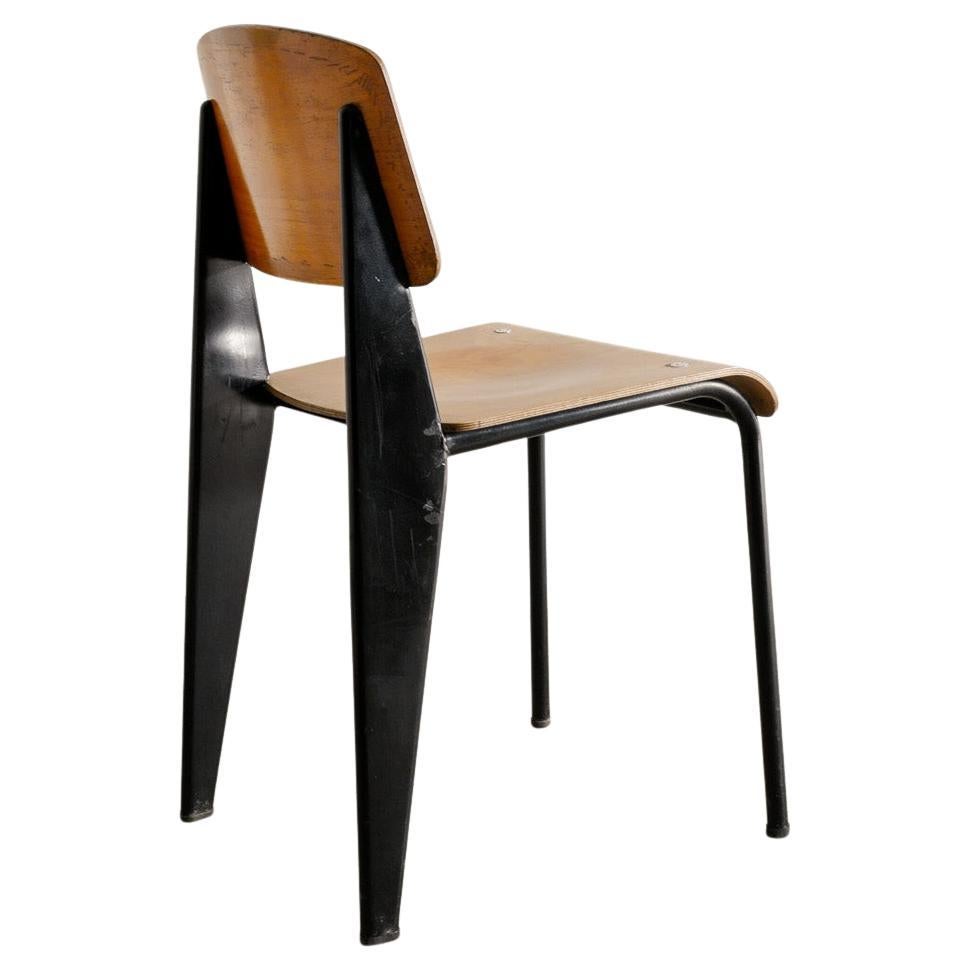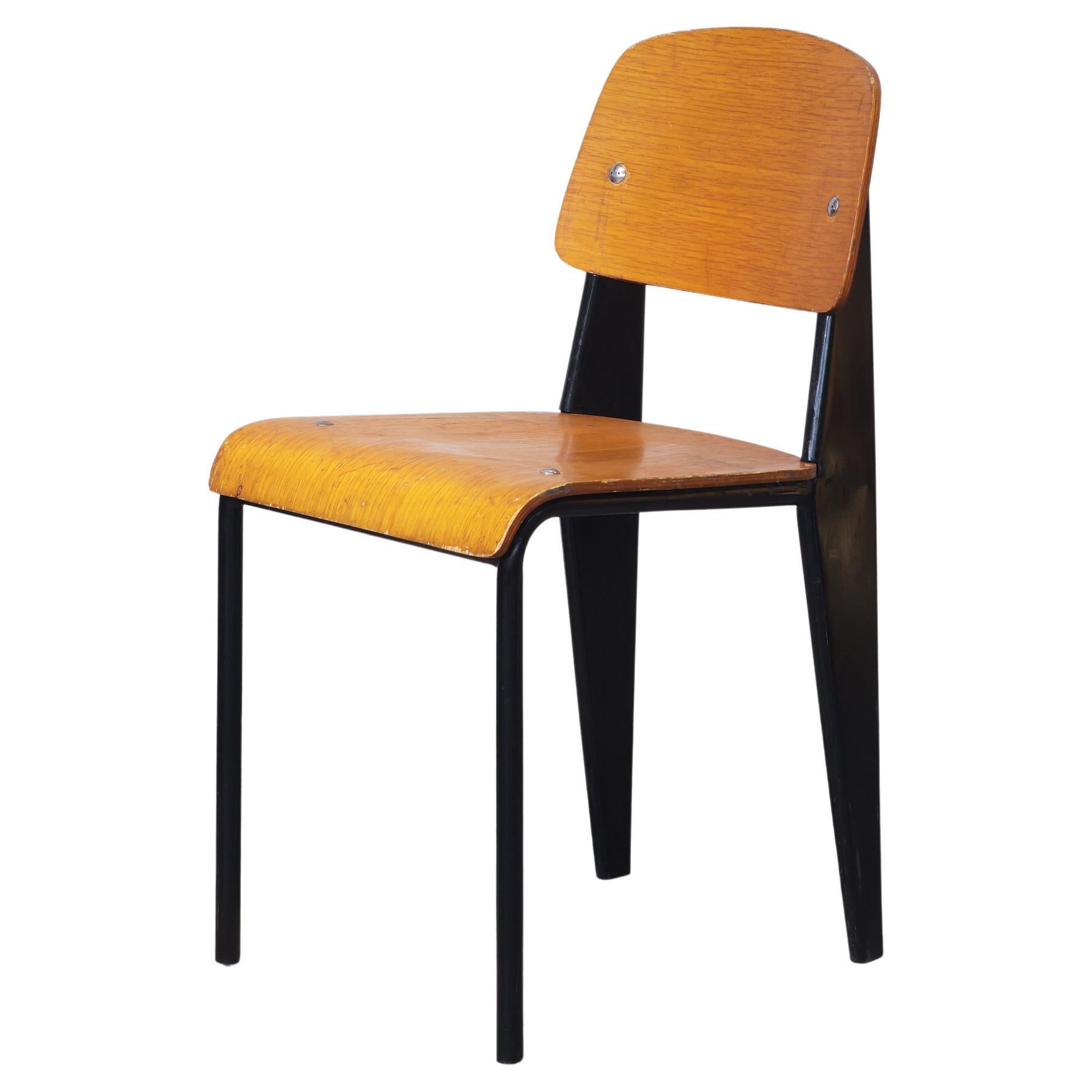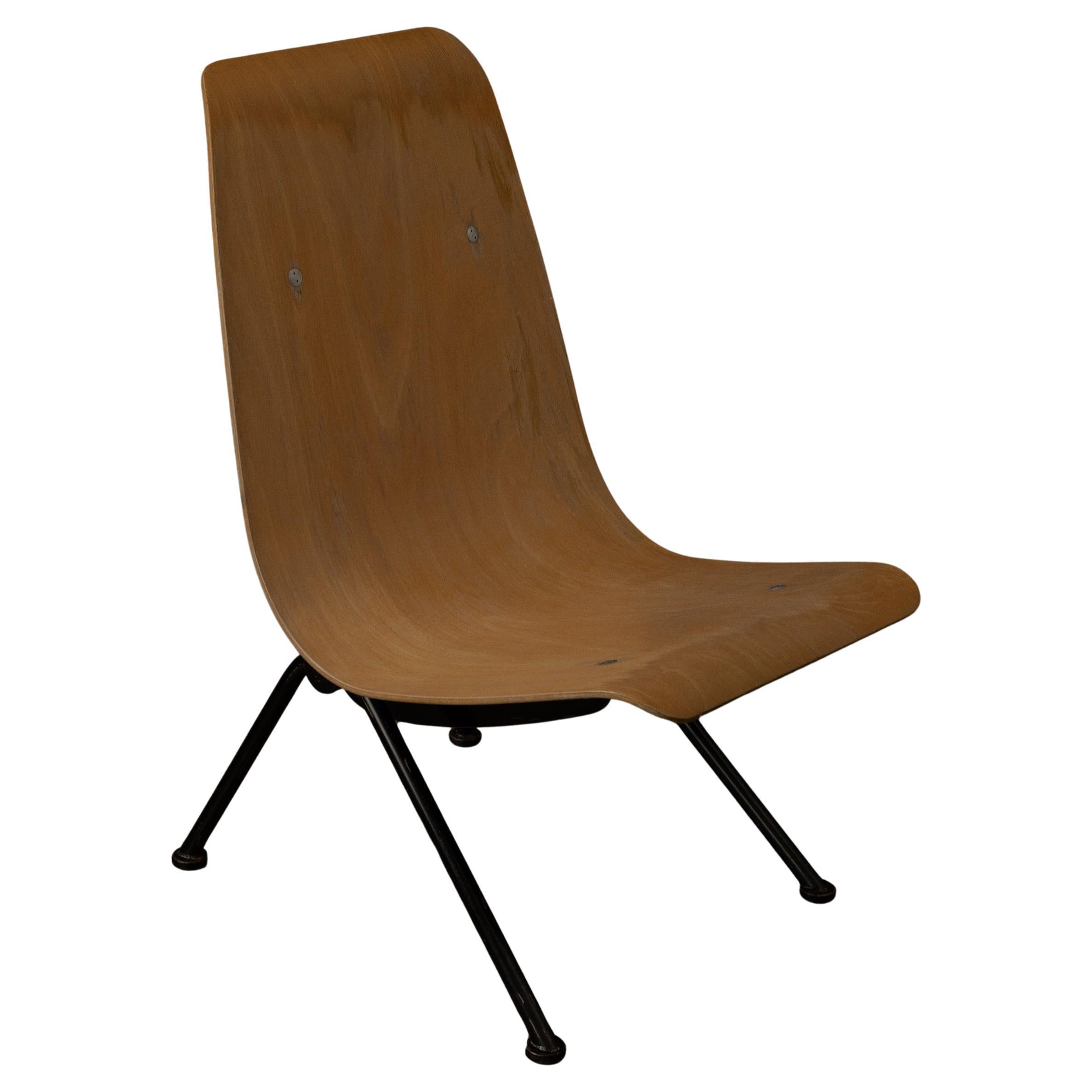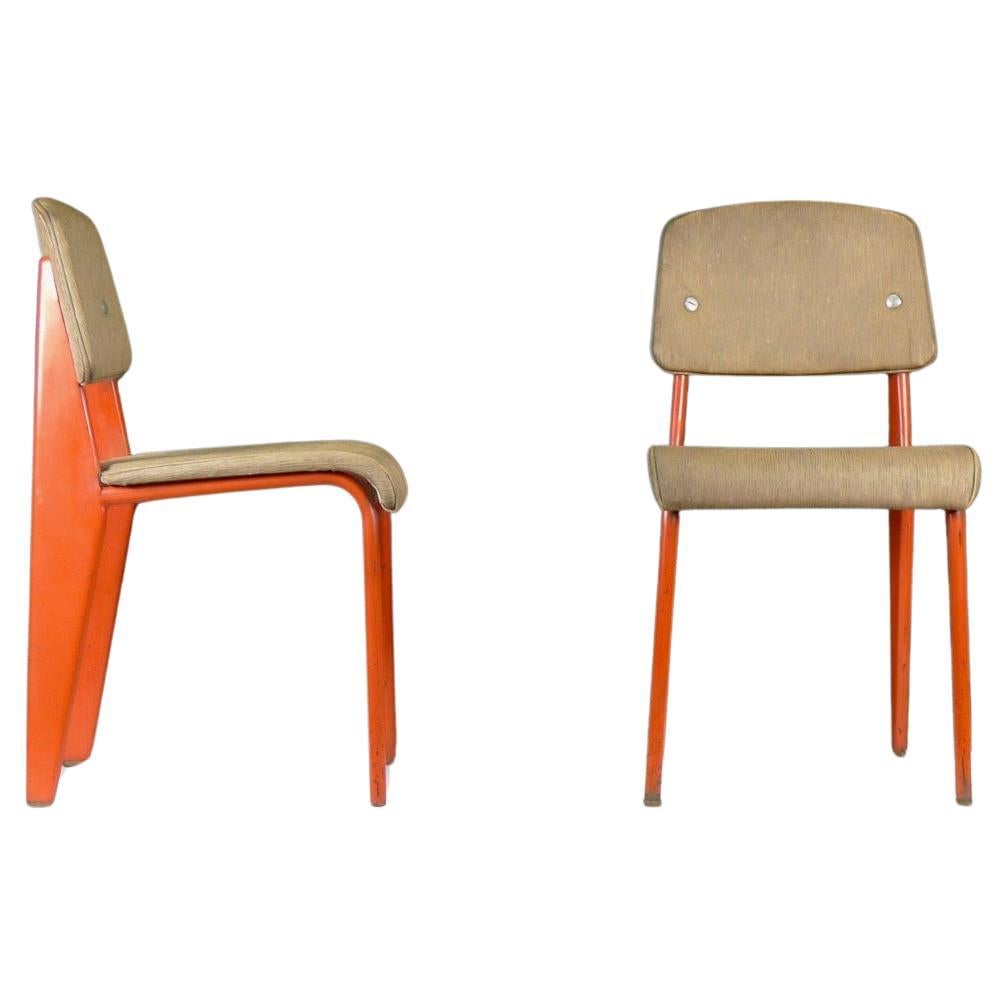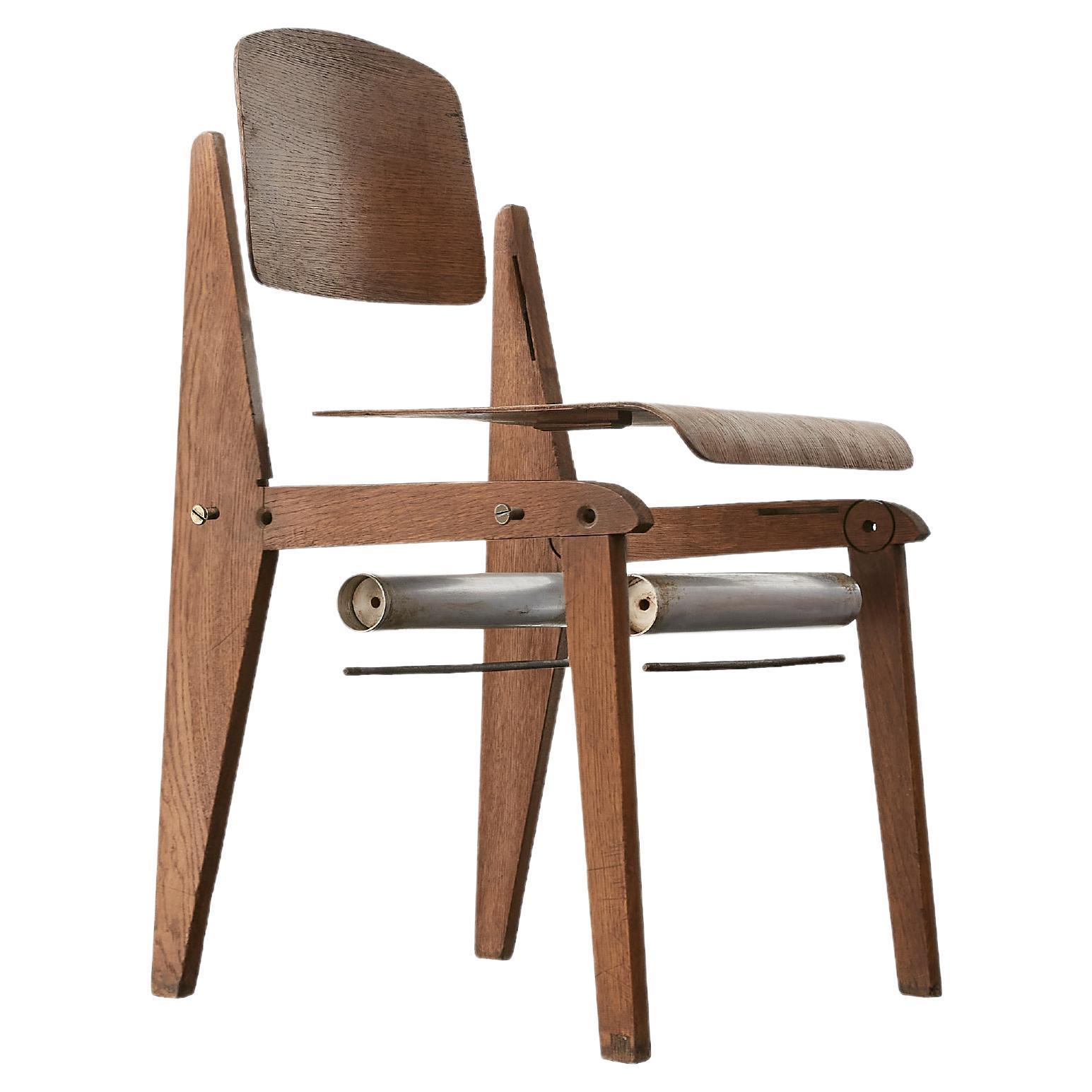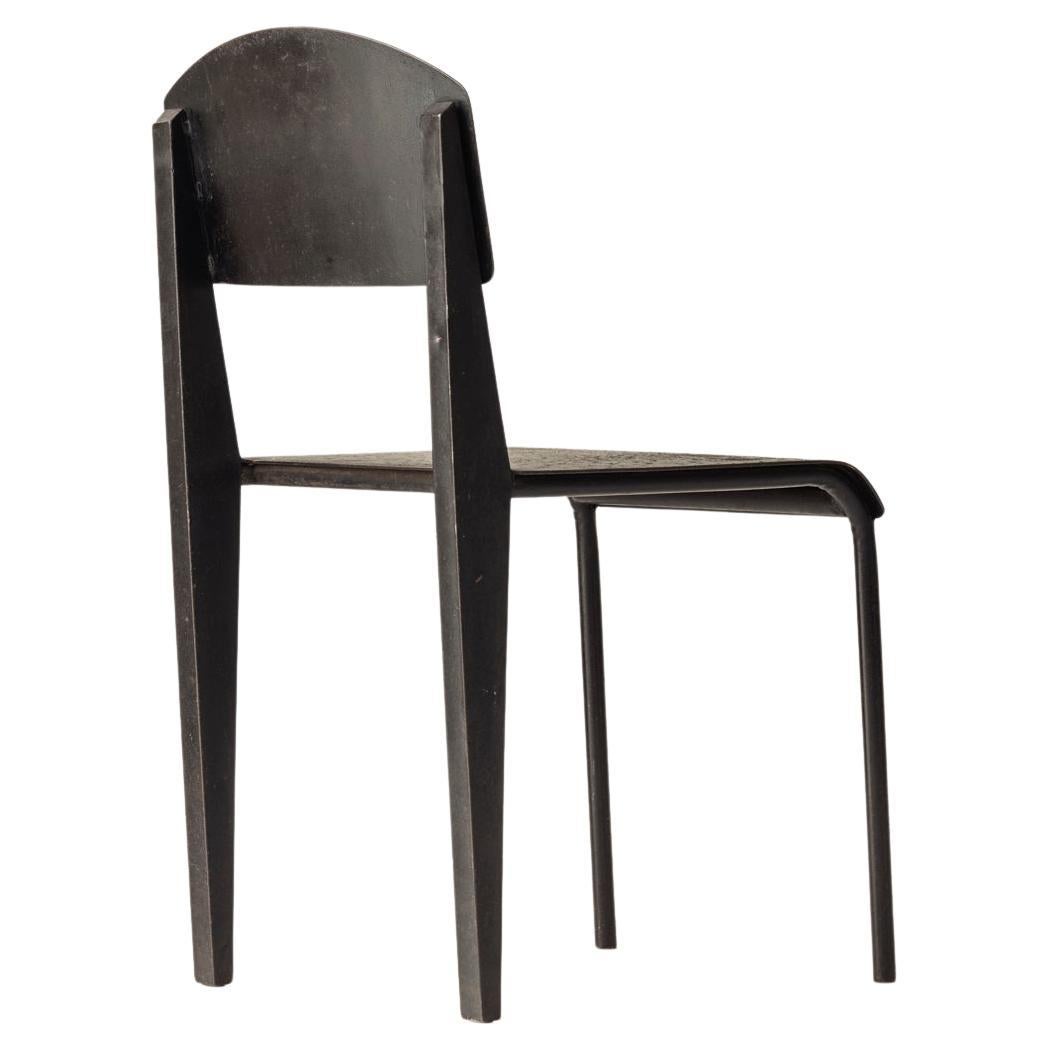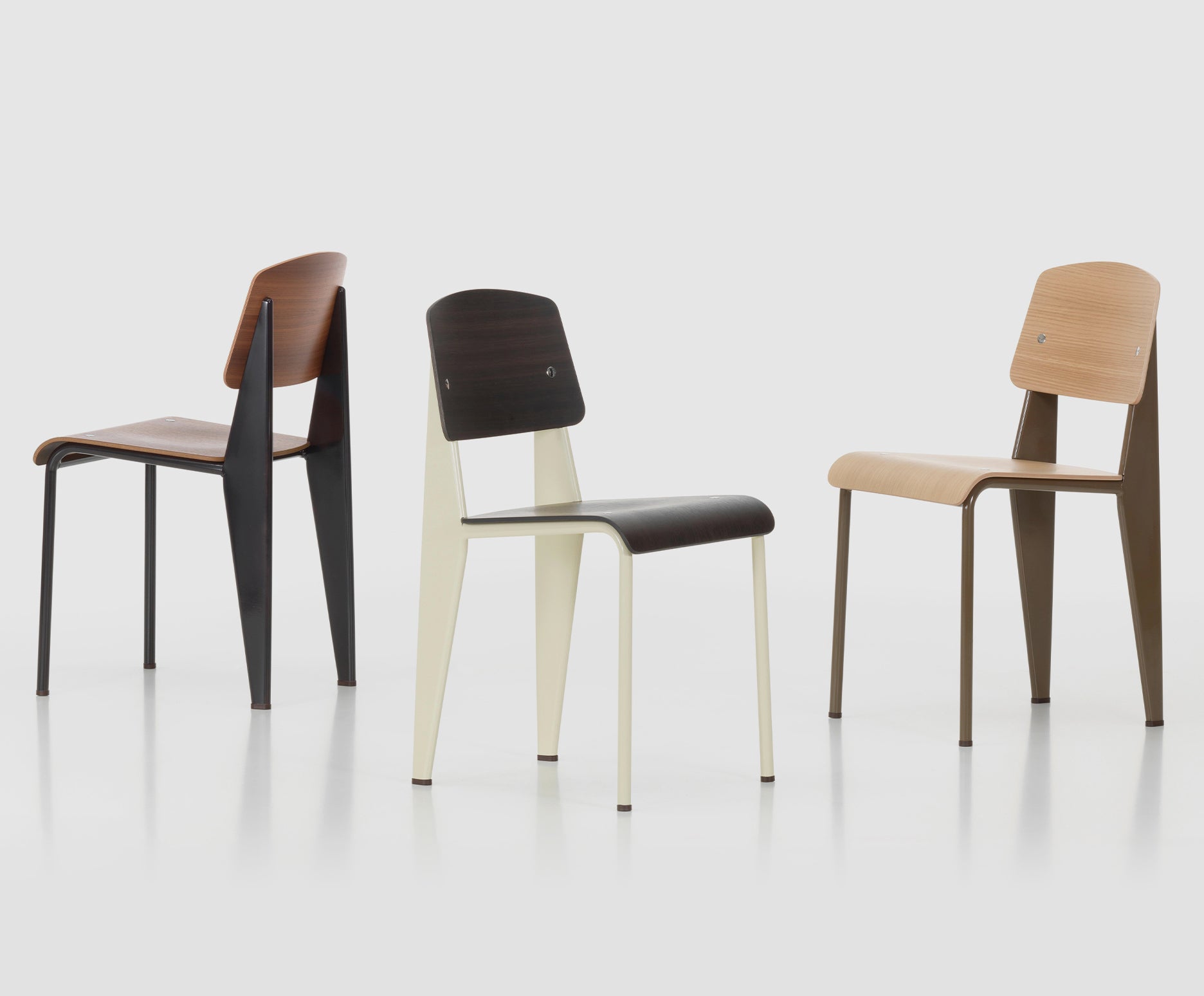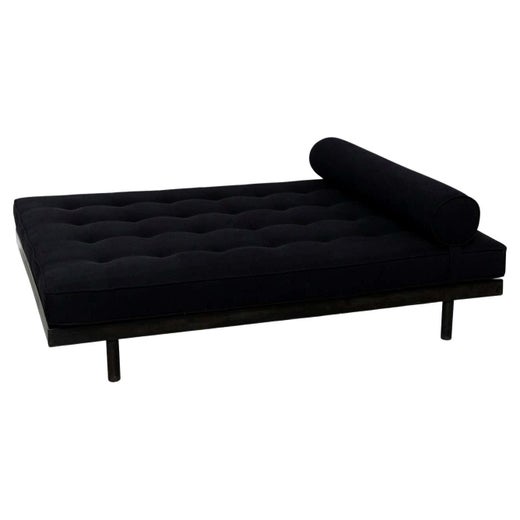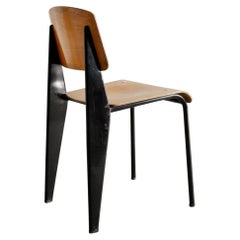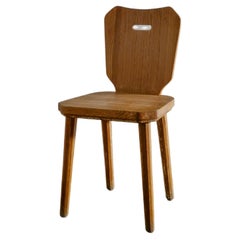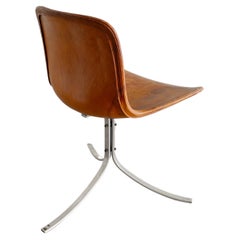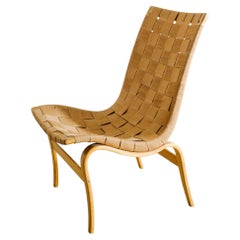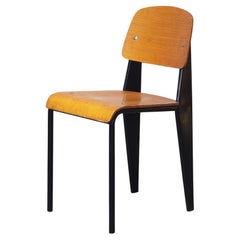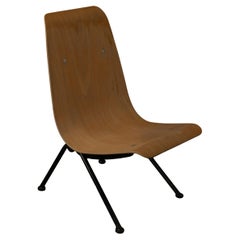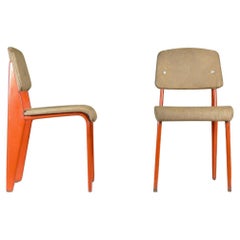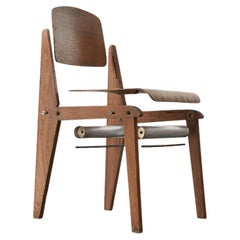Authentic Jean Prouvé Metropole "305 / Standard Chair" in Metal & Plywood 1950s
About the Item
- Creator:Jean Prouvé (Designer)
- Design:
- Dimensions:Height: 31.89 in (81 cm)Width: 16.54 in (42 cm)Depth: 18.12 in (46 cm)Seat Height: 16.93 in (43 cm)
- Style:Mid-Century Modern (Of the Period)
- Materials and Techniques:
- Place of Origin:
- Period:
- Date of Manufacture:1950s
- Condition:Wear consistent with age and use.
- Seller Location:Stockholm, SE
- Reference Number:1stDibs: LU5488236258622
Standard Chair
Most people don’t contemplate how a chair was engineered before they sit in it — they simply trust that it will support them. But the overtly utilitarian Standard chair confronts potential sitters with its design, demonstrating in a forthright manner the engineering that renders it possible for a chair to bear weight.
For a traditional chair with four legs, such as the aptly titled Standard chair, it’s the back two legs that carry the most stress. Its designer, Jean Prouvé (1901–84) demonstrates this concept through the piece’s visually robust, fin-shaped rear legs and its slim, tubular steel front counterparts.
The largely self-taught French architect, born in Paris to visual artist Victor Prouvé and pianist Marie Duhamel, was surrounded by the arts from an early age: His parents’ social circle in his adopted hometown of Nancy included furniture designer Louis Majorelle and glass artist Emile Gallé. The elder Prouvé cofounded an artist collective called École de Nancy (“the Nancy School”), a group that championed a connection between art and industry. The younger Prouvé was highly influenced by the aesthetics and ideals of the collective.
Prouvé went on to study at the city’s school of fine arts as a teenager, served as an apprentice to a blacksmith and then joined a metal workshop in Paris. In 1923, he opened his own workshop, where he focused on wrought-iron elements such as railings and lamps but also dabbled in furniture design. He continued to explore a merging of art, industry and society in his work, and during the interwar period and throughout World War II, Prouvé turned his attention to social projects made possible by mass production, designing bicycles, stoves and affordable prefabricated structures that served as army barracks, housing for refugees and even vacation homes.
It was during this period in 1934 that Prouvé designed the Standard chair for the University of Nancy, using tubular and sheet steel for the legs and wood for the seat and backrest. He more often thought of himself as an engineer rather than an architect or designer — a sentiment shared by Le Corbusier, a client of Prouvé’s who regarded him as a constructeur, a “builder.” Le Corbusier was just one renowned architect who Prouvé worked with over the course of his career; he also collaborated with furniture makers Charlotte Perriand and Pierre Jeanneret as well as artist Alexander Calder, resolving design problems with straightforward solutions. Today the Standard chair is produced by Vitra.
Jean Prouvé
Engineer and metalsmith, self-taught designer and architect, manufacturer and teacher, Jean Prouvé was a key force in the evolution of 20th-century French design, introducing a style that combined economy of means and stylistic chic. Along with his frequent client and collaborator Le Corbusier and others, Prouvé, using his practical skills and his understanding of industrial materials, steered French modernism onto a path that fostered principled, democratic approaches to architecture and design.
Prouvé was born in Nancy, a city with a deep association with the decorative arts. (It is home, for example, to the famed Daum crystal manufactory.) His father, Victor Prouvé, was a ceramist and a friend and co-worker of such stars of the Art Nouveau era as glass artist Émile Gallé and furniture maker Louis Majorelle. Jean Prouvé apprenticed to a blacksmith, studied engineering, and produced ironwork for such greats of French modernism as the architect Robert Mallet-Stevens. In 1931, he opened the firm Atelier Prouvé. There, he perfected techniques in folded metal that resulted in his Standard chair (1934) and other designs aimed at institutions such as schools and hospitals.
During World War II, Prouvé was a member of the French Resistance, and his first postwar efforts were devoted to designing metal pre-fab housing for those left homeless by the conflict. In the 1950s, Prouvé would unite with Charlotte Perriand and Pierre Jeanneret (Le Corbusier’s cousin) on numerous design projects. In 1952, he and Perriand and artist Sonia Delaunay created pieces for the Cité Internationale Universitaire foundation in Paris, which included the colorful, segmented bookshelves that are likely Prouvé’s and Perriand’s best-known designs. The pair also collaborated on 1954’s Antony line of furniture, which again, like the works on 1stDibs, demonstrated a facility for combining material strength with lightness of form.
Prouvé spent his latter decades mostly as a teacher. His work has recently won new appreciation: in 2008 the hotelier Andre Balazs purchased at auction (hammer price: just under $5 million) the Maison Tropicale, a 1951 architectural prototype house that could be shipped flat-packed, and was meant for use by Air France employees in the Congo. Other current Prouvé collectors include Brad Pitt, Larry Gagosian, Martha Stewart and the fashion designer Marc Jacobs.
The rediscovery of Jean Prouvé — given not only the aesthetic and practical power of his designs but also the social conscience his work represents — marks one of the signal “good” aspects of collecting vintage 20th-century design. An appreciation of Prouvé is an appreciation of human decency.
Find antique Jean Prouvé chairs, tables, chaise longues and other furniture on 1stDibs.
- ShippingRetrieving quote...Shipping from: Stockholm, Sweden
- Return Policy
More From This Seller
View AllVintage 1950s French Mid-Century Modern Dining Room Chairs
Metal
Vintage 1940s Swedish Scandinavian Modern Dining Room Chairs
Pine
Vintage 1960s French Scandinavian Modern Dining Room Chairs
Steel
Vintage 1960s Swedish Scandinavian Modern Armchairs
Beech
Vintage 1950s Indian Mid-Century Modern Office Chairs and Desk Chairs
Rattan, Teak
Vintage 1960s American Mid-Century Modern Dining Room Chairs
Seagrass, Walnut
You May Also Like
Mid-20th Century French Modern Chairs
Steel
Vintage 1950s French Mid-Century Modern Chairs
Steel
Vintage 1950s French Mid-Century Modern Chairs
Metal, Enamel
Mid-20th Century French Mid-Century Modern Chairs
Aluminum
Vintage 1950s French Mid-Century Modern Side Chairs
Metal
Vintage 1950s Dutch Mid-Century Modern Chairs
Metal
